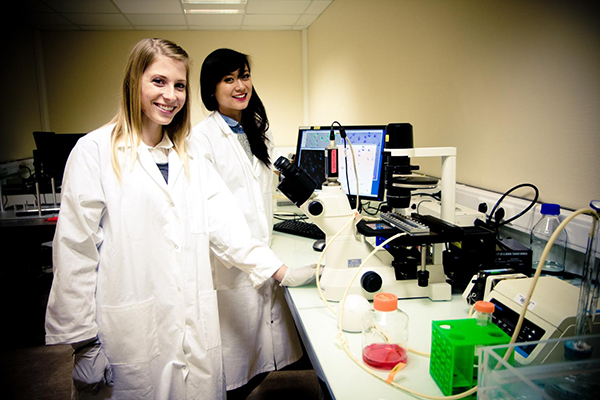 International students and researchers
International students and researchers The European Union improves its host policy
Jobs, mobility, family ties... In 2018, the residence conditions for international students and researchers will significantly improve in the European Union.
Better residence conditions
In summer 2018, the residence and work conditions for non-European students and researchers will significantly improve in the European Union. The European Parliament and Counsel have passed a legislation on May 11th, 2016. Its objective is to attract and retain talents from all over the world.
As such, international students and researchers will have the opportunity to extend their stay in the host country. They will benefit from 9 additional months to find a job or create a company.
Their mobility in the EU will also be extended. For example, a Cambodian student studying psychology in France may live in Italy six months per year, instead of three now. Same logic is applied for international researchers: every year, they will have the opportunity to work for 6 months in another Member country of the EU. Their family may even join them.
Last good point: in parallel to their studies, international students will have the opportunity to work up to 15 hours per week instead of 10 now. This should help them better finance their studies and gradually enter the labour market.
A strategic stake for European countries.
These improvements are highly important for the European Union. "It's been too long since our continent hasn't opened on the outside world. We have increased red tape, which has undermined competitiveness and slowed business creators" said Cecilia Wikström, member of the European Parliament, on May 11th 2016.
Drawing the flow of international students is a strong component of the European strategy. In 2025, 7 to 8 million students will be in mobility in the world according to the Unesco. This is an opportunity European countries want to seize to support scientific excellence and boost their long term innovation capacity.
Other economic fallouts are also expected for Member States. In France, in 2014, international students spent in average over 11,000 euros (excluding registration fees). From everyday spending to tourism and transport fees, their stay generated 1.6 billion euros according to a study by BVA Institute.
About 300,000 international students joined the French higher education system for university year 2014-2015. This figure is continuously increasing: there were 285,000 students in 2010-2011.
Banner: © Novartis
Body: © Jérémy Barande
